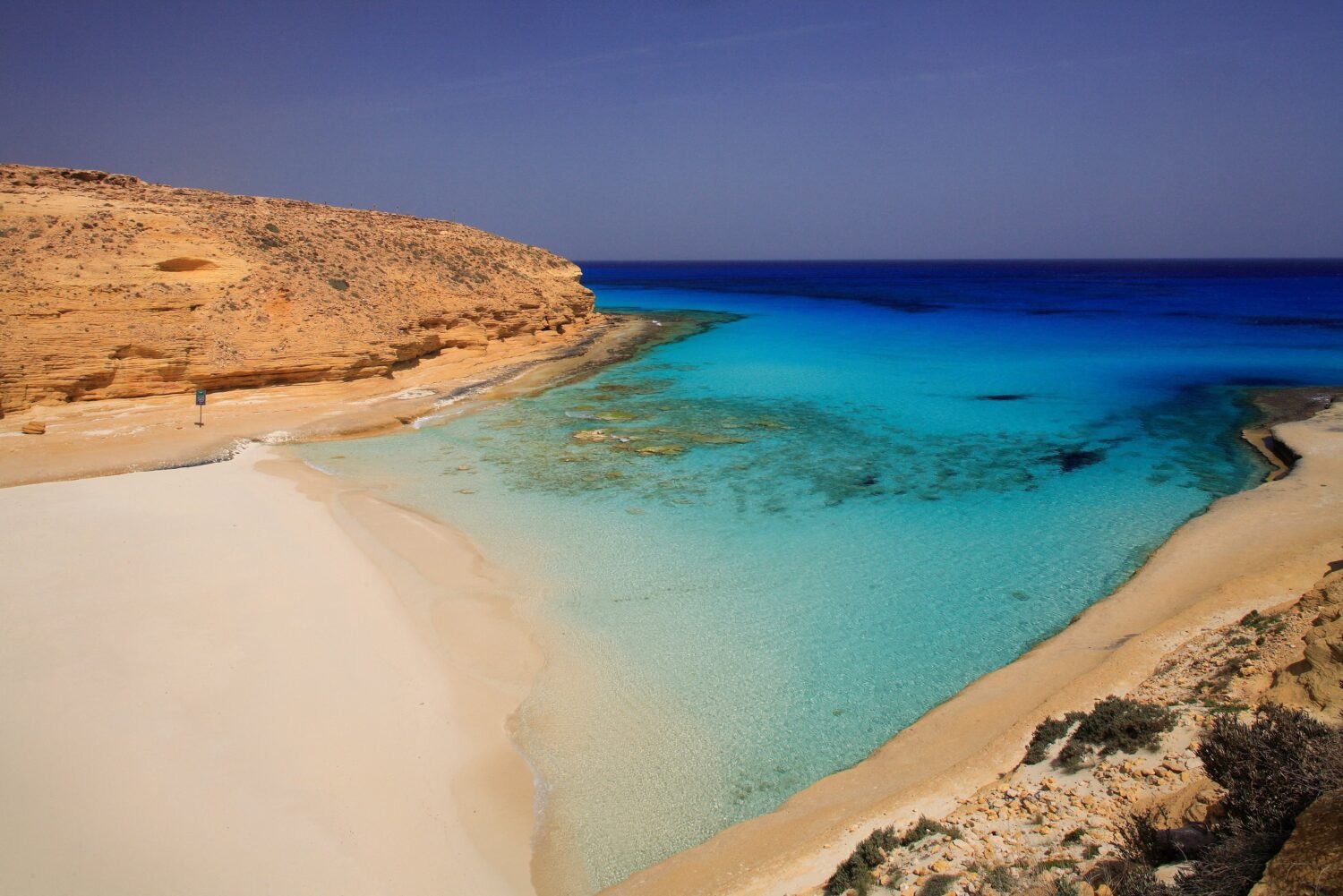Amid Egypt's economic turmoil, the multi-billion dollar Ras al-Hekma land deal with the UAE signals hope and controversy. As development plans unfold, questions linger over its impact on the economy, environment, and local communities.

Kawthar Metwalli
Against a backdrop of economic instability and currency fluctuations in Egypt, the announcement of a multi-billion dollar deal between the Egyptian government and the United Arab Emirates in February garnered significant attention. While Egypt grapples with high unemployment rates, low living standards and a looming debt crisis, the stakes of the agreement are exceptionally high.
The Ras al-Hekma land deal stipulates that the UAE, through its sovereign wealth fund, will hold development rights over the coastal city of Ras al-Hekma. The land deal sets forth one of the largest urban development projects in Egypt, encompassing over 40,600 acres of land. According to Mostafa Madbouly, Egypt’s prime minister, Ras al-Hekma’s urban project is multifaceted. Plans include the development of residential areas, administrative buildings and hospitals, as well as resorts and marinas for tourist vessels.
In exchange for the development rights over the land, Abu Dhabi’s government is to pay Egypt’s leading state-run urban developer, the New Urban Communities Authority (NUCA), $24 billion. The UAE is to deposit an additional $11 billion in Egypt’s central bank for investments in prime developmental projects across Egypt. Moreover, ownership of the land will remain under Egyptian jurisdiction, and NUCA preserves a 35 per cent share in the project.
In a strategic move to mitigate the intensifying economic crisis, the Egyptian government is leveraging this agreement to address pressing socio-economic issues, including unemployment and substandard living conditions. Beyond the economic boost the monetary compensation is expected to bring about, the currency inflows can contribute to the debt repayment scheduled for this year. Furthermore, the Ras al-Hekma land deal will increase Egypt’s foreign currency reserves, which will, in turn, aid in stabilising the Egyptian pound’s exchange rate.
This agreement is, in part, meant to stimulate increased foreign investment and revitalise confidence in the Egyptian economy, potentially attracting up to $150 billion during its development phase. The influx of funds could generate millions of job opportunities and increase liquidity in the Egyptian economy.
However, at its core, the Ras al-Hekma Land Deal signifies a strategic convergence of interests between Egypt and the UAE. This alignment is bolstered by mutual goals to stimulate economic growth, promote regional development and nurture bilateral ties.
The announcement of the Ras al-Hekma land deal sparked wide-ranging reactions from the public. While some were sceptical and criticised the lack of transparency surrounding the terms and conditions of the partnership, others were optimistic, believing the agreement could provide a vehicle for economic stability and improved living standards. Despite the minister’s insistence on characterising the deal as a partnership rather than the sale of land, a significant part of the public remains wary and distrustful.
The contention is all the more tangible amongst residents of the peninsula. In Ras al-Hekma, local tribesmen oppose the transfer of their city’s ownership to investors, whether domestic or foreign. Contrarily, non-indigenous landowners are willing to negotiate for compensation.
Despite differing views, the governing authority decided unilaterally to expropriate all properties at a significantly reduced rate of 150,000 EGP per acre – whereas the land’s market value is estimated at over 1 million EGP per acre – without compensating for residential structures.
Experts have raised concerns regarding the environmental impact of the expansive development project. Their primary concern is the risk of over-development, which could lead to environmental degradation and loss of habitat and biodiversity. Researchers have further highlighted the possibility of shoreline displacement resulting from the large-scale coastal development project.
While the investment deal holds great promise for the future of the Egyptian economy, whether it will be a solution or a sedative to the country’s economic crisis remains to be seen.


